The Wise Fireflies of Data
Glowing insights from a unique study of life lessons from 195 countries
Walking through the data forest
Perhaps, we all agree to the fact that there is no map to arrive at oneself. There are no guidebooks to what makes our journey meaningful. However, it is comforting to believe that life is a sum total of our lived experiences, and what we learn from others.
At the start of COVID 19 pandemic and the long winding lockdown, we posed an interesting question to ourselves atProject FUEL—How can we get through this difficult time globally with the collective wisdom of the world? Inspired, we set out on an ambitious task to document one life lesson each from every single country.
As the inventory started filling in, we recognised fascinating patterns on how people learn, summarize their reflections into words and wish to be remembered. Our naked eye though could only scratch the surface. We needed someone to look at this harvested data and draw substantial insights. Enter -Ruchika Singh, a data scientist.
Over the next few months, Ruchika gathered an incredible acumen about what the data revealed to her.
With the skills of our amazing data visualizer,Rasagy Sharma, Ruchika’s numbers have a face. It speaks to you about the world through the lens of learning and that we aren’t all that different after all.

Under the canopy of questions
In the data forest, there are infinite possibilities of what one can find. We had to start at a place that was accessible, welcoming and relatable for us as a community of doers and dreamers. To understand the wisdom interplay we began with these questions:- Who do we learn from?
- What are the common themes of learning from life and how impacted it is by where we live?
- What emotions do people experience while learning through life – are there any nuances to it?
- How does age influence our learning curve?

Picking up the Ginkgo leaves
You will see the answers—to the questions posed above—depicted through the metaphoric element of leaves. These aren’t any ordinary ones rather the special ones that have endured for millions of years with little change. They come from the Ginkgo tree, the oldest surviving species of tree known to exist. This ancient tree survived even the atomic bomb in Hiroshima. Even though scientists predicted that nothing would grow at the site for 75 years, the ginkgo trees fully recovered, and ginkgo is now regarded as a symbol of endurance and vitality.
Their soul-stirring process of re-birth and incredibly long life span encouraged us to adopt the Ginkgo leaves to depict each insight. A gentle reminder, that we too can bloom despite the greatest challenges thrown at us.
The circle of our wisdom
David P Brown famously said that we are the average of the five people we spend the most time with. Would you be surprised if we told you that those five people who influence our life lessons usually come from an outer circle? Words and actions of the society we are part of, strangers we meet and even public figures we adore impact us deeply. Maybe it's time to assess who to follow on your social media feed?
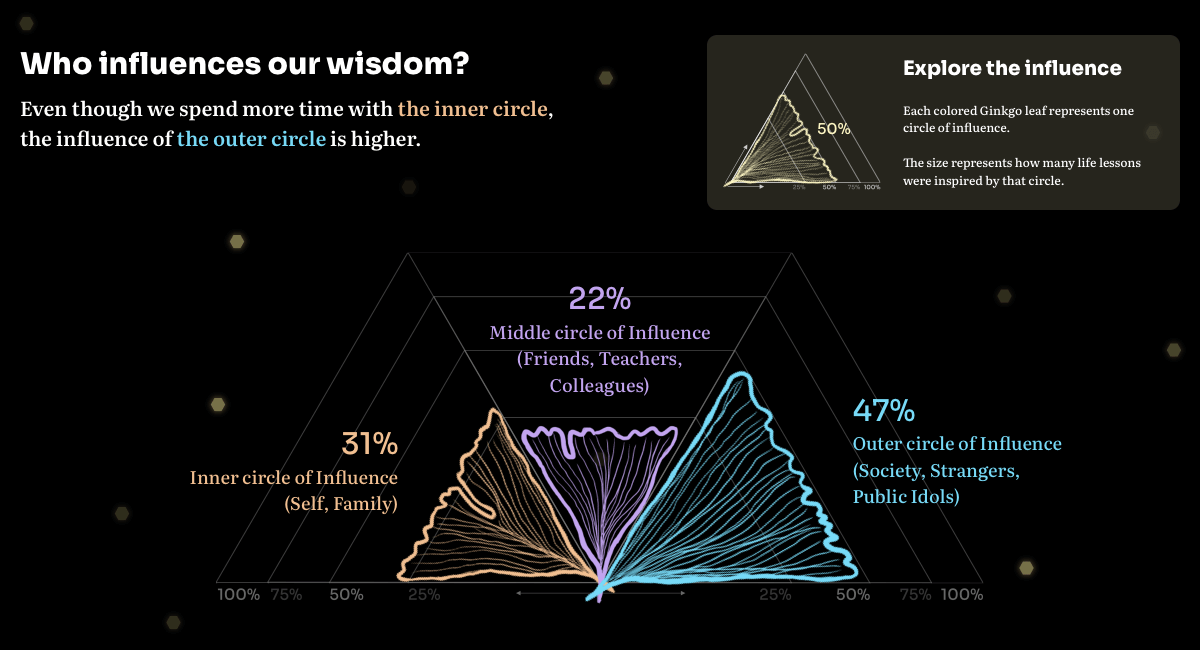
The wise fireflies also hint that 50% of us learn from getting out there in the world — like Matej Golob, who found his biggest influences through ‘Vipassana’ and books — versus formal connections like school and office. No wonder, the Tibetan proverb proclaims, “Traveling is a return to the essentials.”
Jillian from Trinidad & Tobagospeaks about her dad teaching her an old proverb growing up; the meaning of which she only came to understand much later in life; establishing that nearly one in three people carry the advice from their inner circle forward with them.
Payoff with a purpose
Arriving at a life lesson is rewarding in itself. It connotes that you have been able to introspect and condense your experience (good or bad) into a moral of the story. Additionally, these morals could represent diverse shades of payoffs—Overcoming adversity, realization, hope, change or expecting change.
The good news is that realization and hope are the most common payoffs of learning through life. Data also indicates that people are not expecting their situation to change immediately. In fact, only 7% of those who shared their life lessons were expecting change. As they acknowledge the struggles and the victories of their individual journeys, it's hope and realization that emerges at the end for more than 60% of our study group. In fact, life lessons drive hope, strength and acceptance of the change that is taking place.
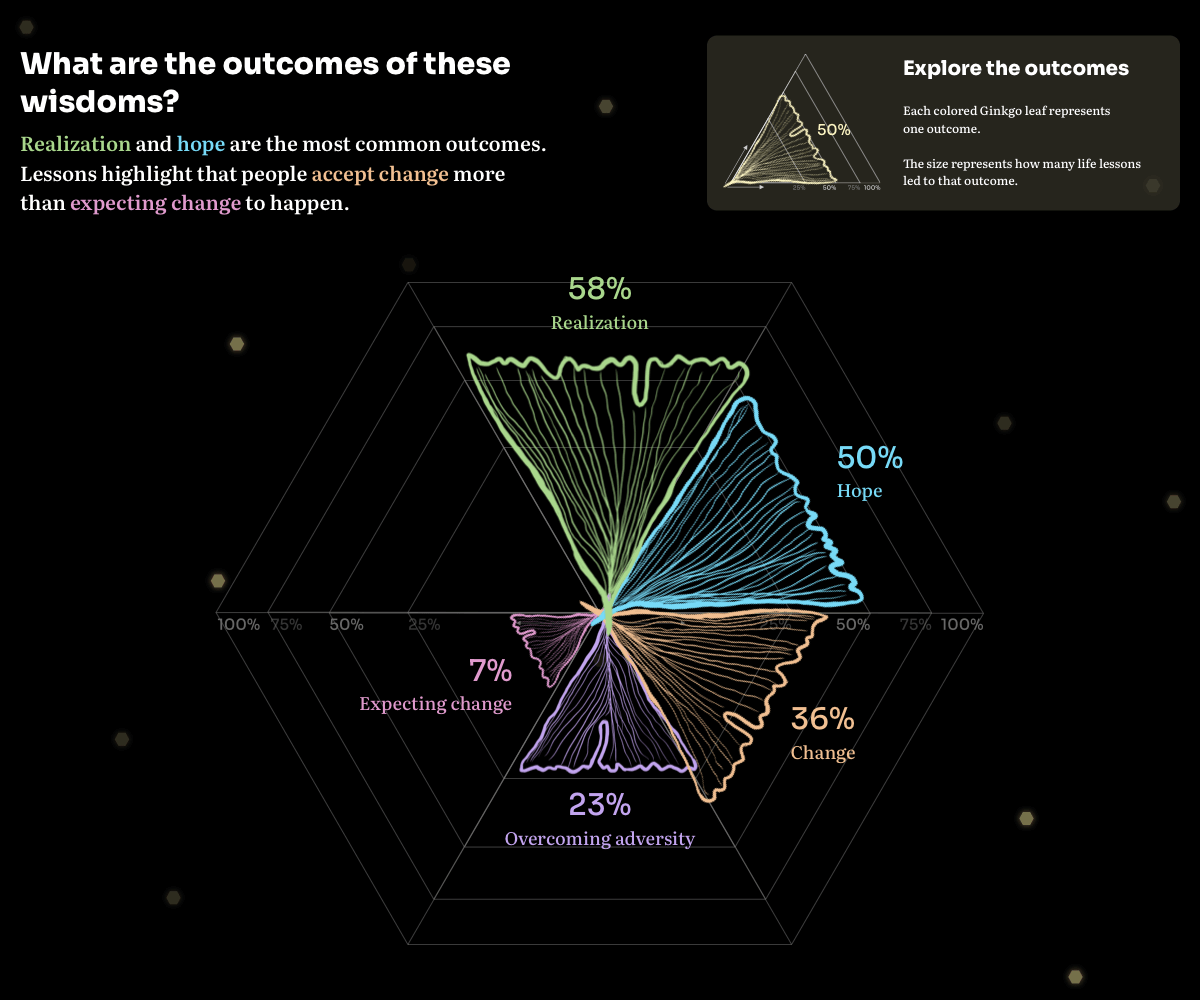
Take a breather under the shade of these life lesson examples:
Shahira’s lesson especially resonates when you think of hope in the times we live in. She is in Egypt and like all of us impacted by COVID curfews. She asks the world to take time to appreciate what we have and not worry for life to get perfect. Little moments bring monumental joy when you find yourselves stuck in situations. Be it that one daily walk or heading to the garden to water your plants, the small things seem like priceless treasures so never take it for granted.
Another inspiring story is fromMinthu from Myanmar. Minthu has truly embraced learning as his way of life. He shares that as he struggled and built his career and eventually owned his own business—the one thing that gave him happiness, a sense of fulfilment, social skills and communication was the learning itself! And so, he never stopped.
Swimming in the same river
While life may sail us to our unique destinations and journeys, we swim through the same river of emotions.
Meaning: Regardless of where we are and what we experience, our learning process evokes similar emotions across the world. As people learned across the globe, the feelings of happiness and gratitude overtook feelings of anger and fear. How reassuring is that?! To know that a common thread runs through all of us. Even though the intensity of its pull and purpose variates from time to time; the thread can be felt by everyone, nonetheless.
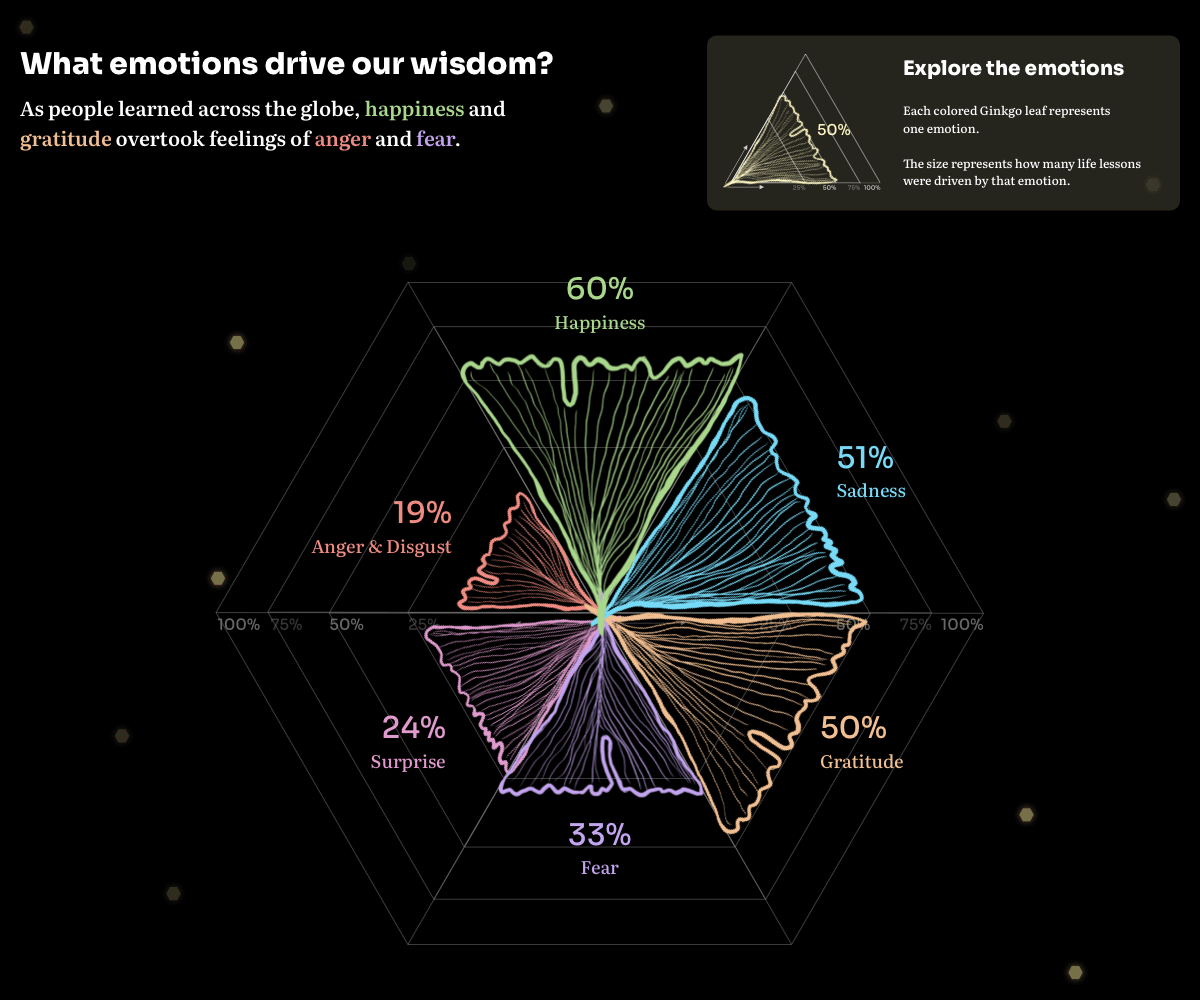
Take a breather by the small stream of these soothing examples:
An inspiringSyrian boy, Hadi, learnt to be happy no matter what happens. Especially, when he found himself in a boat fleeing with 44 other people from the war. Instead of focusing on his pain, he looked at the ocean, people sang in the boat and he decided to enjoy the moment irrespective of what the future held. This lesson is not that different fromMonday Collinswho was a former child soldier in Uganda. His escape at the age of 12, resulted in him becoming an active ambassador of peace; teaching him in the process, “No matter what life throws your way, always redirect yourself towards the positive side.”
Acceptance is liberation
Back in 2016, the Manager of Mukti Bhawan, Mr. Bhairav Nath Shukla, a hostel where people check in to die in the holy city of Varanasi, India told us12 life lessons from the 12000 deathshe had witnessed in his long and illustrious career. One of the key learnings Mr. Shukla had meticulously converged through his years of observations was that acceptance is liberation.
“Most people shirk away from accepting what they are going through. This constant denial breeds in them emotions that are highly dangerous. Only once you accept your situation is when you become free to decide what to do about it. Without acceptance, you are always in the grey space. When you are not in denial of a problem you have the strength to find a solution.
Indifference, avoidance, and denial of a certain truth, develop a fear in the person. Instead, accept the situation so you are free to think what you want to do about it and how. Acceptance will liberate you and empower you.”
– Mr. Bhairav Nath Shukla
Our data person Ruchika, who has never even met Mr.Shukla found a similar insight from the life lessons representing that the process of expecting change is much harder than living with the change.
In our study, 47% of people experienced anger and disgust in anticipation of change while 51% of people were happy and grateful once the change had happened.
Acceptance encourages us to let go or move on. It immunes us against repenting about the same challenges over and over again and harnesses us for the next chapter of recovery and growth.
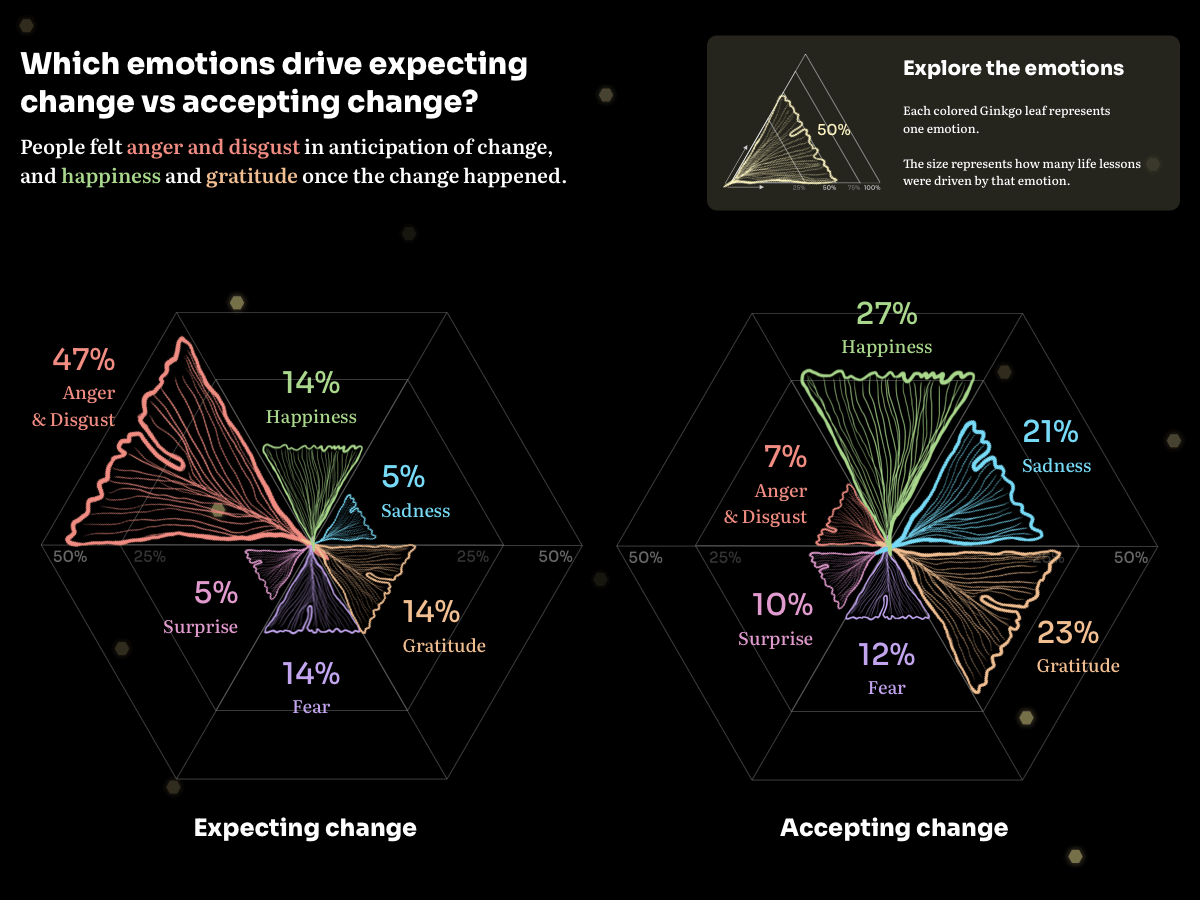
Take a breather to feel the cool breeze of these potent examples:
The life lesson ofZwelithini from Lesothoshowcases that he is waiting for change to take place amidst the COVID crisis. The economic and social concern leaving many civilians stranded, compels him to treat everything as an emergency. On the other hand, LGBTI rights activist,Fanny Meléndez, from El Salvadortalks about the struggle she faces as a transgender woman in her fight to make her country a fully inclusive one.
Values will guide you home
No matter how far you come from your philosophy, there is always a chance to get back home. The navigation tool, as data reveals, are your core values. Be it courage, growth, kindness, respect, love or patience, most of us operate from our root beliefs.
In many ways, your North Star. Core values are the sacred principles that guide you through your daily routines and protect you in the face of your toughest challenges. Compromising the value system you have designed for yourself can impact the outcome of your experience immensely.
As the data insight unveils, the most common value systems people learn from are Courage, Gratitude and Growth.
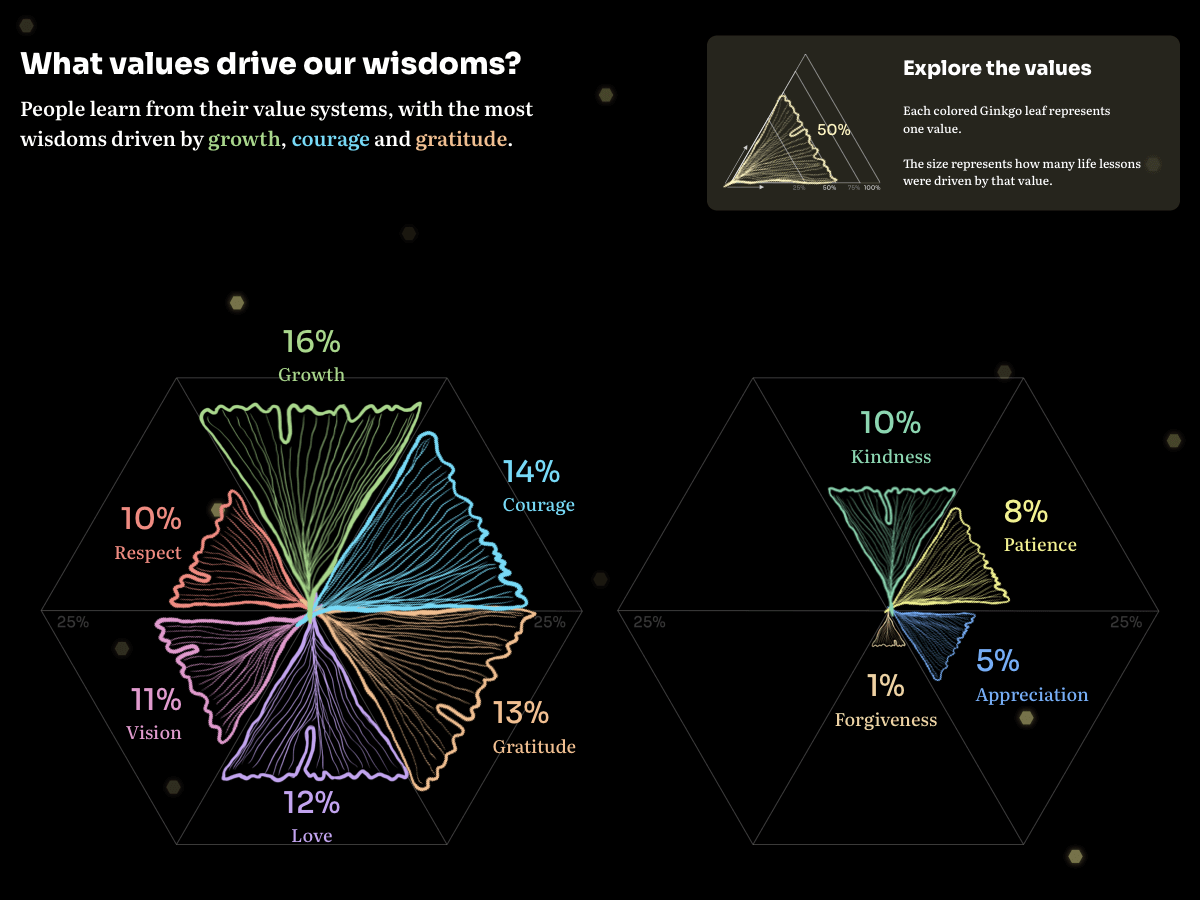
It was particularly intriguing that a value like ‘Courage’ remained the dominant driver across all kinds of outcomes. Whether people seek hope, realize the greater truth or went through a significant life change, their courage, gratitude and sense of growth saw them through.
The African-American author, Dr. Maya Angelou, aptly put this in her words, “Without courage, we cannot practice any other virtue with consistency. We can't be kind, true, merciful, generous, or honest. You can practice any virtue erratically, but nothing consistently without courage.”
Our ability to learn also goes hand in hand with being able to feel “grateful” and notice “growth.”
“Respect” and ”Kindness” stand out for those who are expecting change. The value that connects with others more than self perhaps. Because we all crave to be heard, seen and understood to a larger extent.
Take a breather to look up at the clear sky of these calming examples:
Bernice Samantha Ramirezfrom Belize says, being a dreamer lifted her from the ‘swamp hole’ over the years. As a young teenage girl, toiling each day, the rewards of her labour were evident soon enough. "Gosh!" she would say, "Thank you, Lord, for the ability to dream big and to see them become a reality!"
Age of reflection and resilience
Even though, popular belief may indicate that older age and negative experiences can make people less hopeful and rigid. In fact, research of 1160 Mexican American Parents ( 26-71) indicated otherwise. Thestudy showed that experiencing negative events did not impede the growth of optimism over time.
When we look at the eventual payoffs and compare across age groups in our study, we find a similar trend. Hope continues to be a dominant outcome across all ages. In fact as people grow older, not only do they continue to be resiliently optimistic, they also embrace gratitude and joy in their learning process.
It’s key to note that whether one is young or old, everyone has nuggets of wisdom to offer, irrespective of the parameter of age. Oftentimes, life lessons from the opposite end of the spectrum—like that ofCarole Stone, “Take life by the scruff of the neck and do your best with what it throws at you. It is often the things we don’t try in life that disappoint us more than the things we try that fail”—have a similar emphasis on the same flavour of wisdom— as that ofAnton from Belarus, “Believe in yourself until everyone else does too.” This helps bust the age-old myth that you grow wise only as you grow old. Oscar Wilde validates it further with his quote, “With age comes wisdom, but sometimes age comes alone.”

Grow your own garden
At last, when you arrive at your own life lesson, after having explored this forest of data with the wise fireflies of insights, we hope you are able to see yourself as part of a global constellation of learning. Most of all, we deeply wish that you come to believe that you are not alone. There are people across geographies, speaking languages foreign to you, with distinct cultural beliefs, peculiar fashion sense and variegated philosophies yet we are really more alike than unalike. Led by this awareness, perhaps we all can invite more empathy, kindness and compassion into this abundant planet that we call home.
As the teacher and author, Ram Dass beautifully illustrates,“When you go out into the woods, and you look at trees, you see all these different trees. And some of them are bent, and some of them are straight, and some of them are evergreens, and some of them are whatever. And you look at the tree and you allow it. You see why it is the way it is. You sort of understand that it didn’t get enough light, and so it turned that way. And you don’t get all emotional about it. You just allow it. You appreciate the tree. The minute you get near humans, you lose all that. And you are constantly saying ‘You are too this, or I’m too this.’ That judgment mind comes in. And so I practice turning people into trees. Which means appreciating them just the way they are.”
“When you go out into the woods, and you look at trees, you see all these different trees. And some of them are bent, and some of them are straight, and some of them are evergreens, and some of them are whatever. And you look at the tree and you allow it. You see why it is the way it is. You sort of understand that it didn’t get enough light, and so it turned that way. And you don’t get all emotional about it. You just allow it. You appreciate the tree. The minute you get near humans, you lose all that. And you are constantly saying ‘You are too this, or I’m too this.’ That judgment mind comes in. And so I practice turning people into trees. Which means appreciating them just the way they are.”
Head back to the life lessons collection and tell us what you find.

DISCLAIMER
The inferences and analysis above are based on a sample of 230 individual stories provided voluntarily by respondents. The trends noted above are purely a quantitative reflection of these life lessons. As every data point in this study is someone’s story or maybe even a lifetime’s, we wanted to visualize in a way that doesn’t take the spirit and uniqueness of each individual lesson. So we chose the ginkgo leaves representing wisdom, the differences and the similarities of all the collected life lessons. Our goal was not to do scientific research on human behavior. We believe there is power in the collective learnings and there is no better tool than data to share this with the world.
